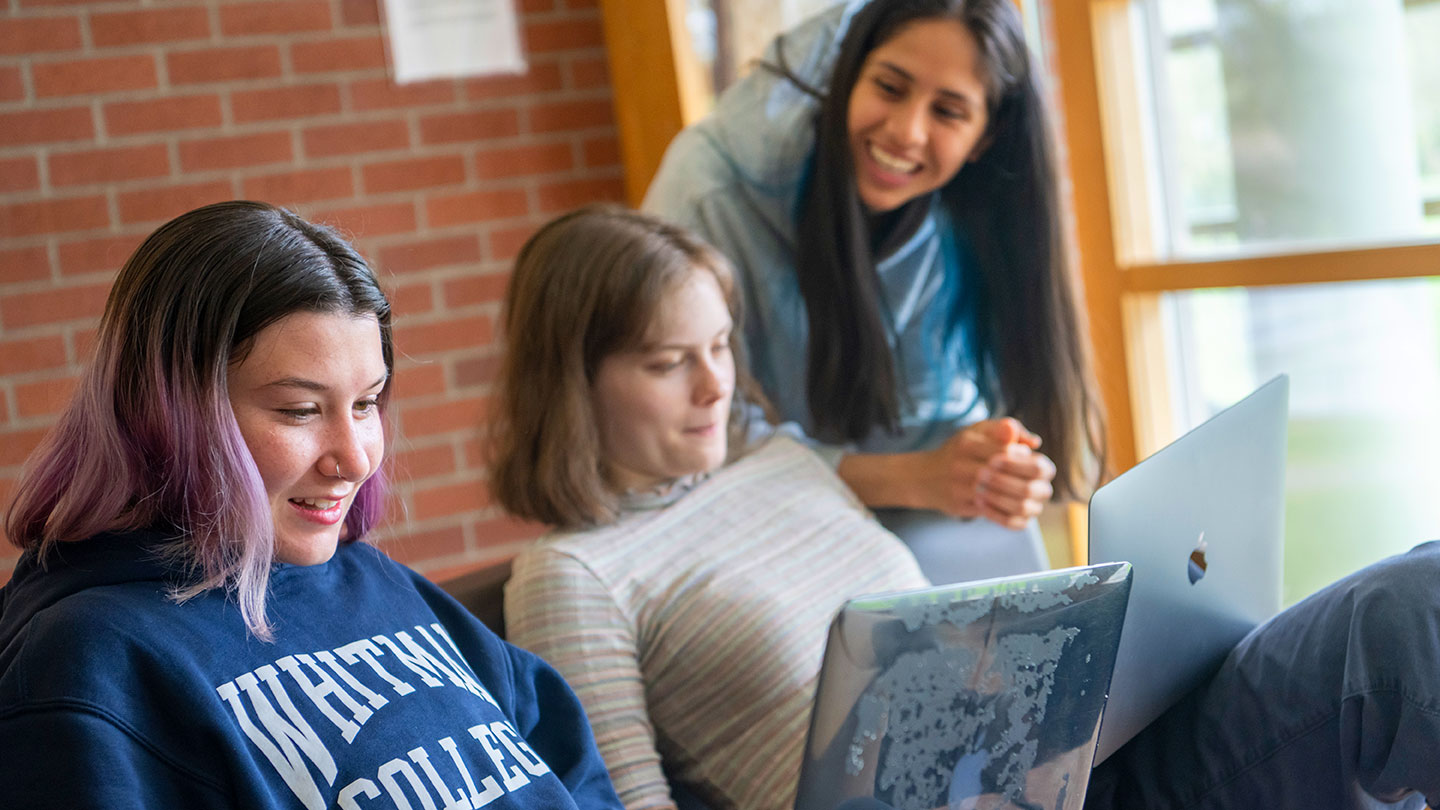

General Studies
Be an intellectual explorer.
When you get your degree from Whitman College, your academic experience won’t be limited to your major. You’ll think broadly about the world you live in, make connections between wildly different subjects, learn to listen to diverse perspectives—and gain valuable skills that will help you change the world.
Whitman’s General Studies Program is designed to introduce you to a wide range of subjects and skills.

Why Do General Studies Matter?
At Whitman, we believe curiosity makes us better learners and better members of our communities—and that diverse perspectives are essential for solving complex problems.
Through Whitman’s General Studies, you’ll:
- Get a head-start on skills you’ll need for upper-level courses.
- Learn to analyze and evaluate information effectively.
- Develop your voice while listening generously to others.
- Explore complex relationships between subjects.
- Deepen your imagination as you create your own original work.

Whitman’s First-Year Seminars
Semester 1: Exploring Complex Questions
Your first Whitman classroom experience will challenge and support you in a learning community led by a team of professors from different disciplines. You’ll join your fellow students in thinking about interesting topics and big questions in innovative ways.
Semester 2: Making Powerful Arguments
In the spring of your first year, you’ll join a new group of classmates in an in-depth collaborative investigation of a topic that matters to you. You’ll learn to write and speak persuasively, with the support of rigorous, research-based evidence.
New! General Studies Program Beginning 2024–2025
Explore
Courses in this category pay particular attention to the ways that language, form and genre shape our ideas. Experience how different disciplines—like literature, visual arts, music and film—explore fundamental questions of human experience.
In this category, you’ll discover how the social sciences examine human behavior and social structures. From anthropology to economics, history to sociology, you’ll learn how different disciplines investigate humanity’s place in the world.
Learn how scientists understand the natural world through hypotheses, data gathering, experimentation and observation. These courses include a special focus on how to approach today’s challenges, such as rapid technological and environmental change, from a scientific perspective.
In a data-driven world, understanding how to analyze and interpret data with sound methods to solve real-world problems is increasingly important. Here’s your chance to hone your skills in computer science, mathematics, statistics and more.
Learn the language of the arts! These courses will challenge you to explore your creative side with hands-on experience of a variety of materials, forms and creative processes, as well as critical analysis of your own and others’ work.
Expand your global perspective and examine your own place in the world. In these courses, you’ll thoughtfully engage with the rich traditions of different cultures, as well as with issues that affect us all, like migration, global finance and climate change.
How does inequality originate? And how can it be resisted? In these challenging courses, you’ll investigate issues of power, privilege and social justice—both in the U.S. and abroad. Explore essential topics related to race, gender, disability, sexual orientation, socioeconomic background and much more.
Connect
These courses, typically taken in your second or third year, are designed to build your writing skills in your major or another area of study. They’ll help you become a confident communicator in whatever subjects you choose to explore.
To help shape the future, you need to understand the past. These courses will expand your perspective beyond the modern world and help you learn how to understand and use historical evidence in your research.

How It Works
Every Whitman student must complete two First Year Seminars in the fall and spring of their first year:
- Exploring Complex Questions
- Making Powerful Arguments
Before graduation, students must complete at least three credits in each of seven categories:
- Textual Analysis
- The Individual and Society
- Scientific Inquiry
- Quantitative Analysis
- Creative Production
- Global Cultures and Languages
- Power and Equity
At least three of the credits above (or three additional credits) must count toward each of the following categories:
- Writing Across Contexts
- Studying the Past
Some courses are designed to fulfill more than one of these categories, but students may apply each course only toward one area. Exception: Courses that fulfill Writing Across Contexts and Studying the Past may be double-counted toward categories 1–7.